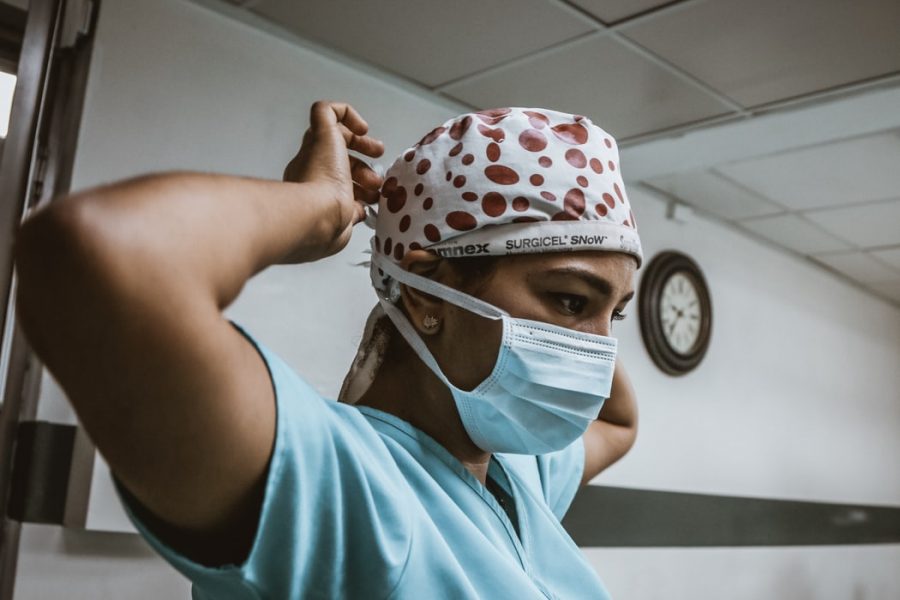Austin ICU Nurses on COVID-19
SJ Objio
Dealing with COVID-19 brings great levels of stress to ICU nurses. They face constant challenges, from seeing patients die alone to putting their lives at risk to care for the sick.
September 12, 2020
Since the outbreak of COVID-19, North Austin’s ICU nurses have been working around the clock to handle the increasing number of patients entering intensive care. Every day, these nurses and doctors are faced with multiple struggles, from finding more room and equipment for sick patients to isolating the virus from the rest of the hospital. Looking for ways to cope with these issues is already hard enough as it is but with schools starting to open back up, they’ll be placed under even more strain.
There are many factors that act as stressors for hospital staff. For starters, many hospitals had reached the point where their capacity was at its limit, meaning they had to turn many ill people away. There was additionally a serious issue with the number of patients in critical condition outnumbering how many ventilators they had, forcing numerous hospitals to decide who lives and dies. Nurses also have to deal with other hardships, including watching patients endure their time in the hospital alone.
“The most difficult part is that these patients and families are being told that they can’t have visitors,” ICU Nurse Travis Yeager said. “Being in ICU, we see the worst of it, including death. Often these patients end up dying alone because we can’t let their families be with them, and that is the hardest thing to deal with.”
According to ICU Specialist Kellie Lyon, what was most worrisome about this situation to her was the number of people she interacted with in the hospital who believed that the virus was just a “political conspiracy.” She believes that this creates a much larger problem because they are the same people who refuse to wear masks or practice social distancing.
“I’ve taken care of all of these people on ventilators that are on ventilators for two months, it’s not fake,” Ms. Lyon said. “No one takes it seriously until somebody that they know gets sick or dies and it’s just shocking that a large amount [sic] of people think it’s made up.”
One major issue with the spread of the disease, according to Medical Specialist Rachel Galloway, was the U.S. government and how they handled the virus from the beginning. There have been many complaints from people working in the medical field about how poor the government’s reaction time had been.
“Initially, what was really frustrating was that the government had not shut down international travel and also kept the first cases that popped up in January under the table,” Ms. Galloway said. “They didn’t [implement] restrictions until early March but at that point, it was too late. The first couple of patients for me were people who weren’t from the U.S. who had been traveling, bringing the virus with them.”
She and many other medical professionals at the North Austin Medical facility estimate that the number of cases will “spike up” during the fall and winter as a direct effect of opening up schools for in-class learning. So far, there’s still not a definite answer to when the spreading of COVID will slow down, and the best they can come up with for now is an estimate.
“There’s a chance the virus will die down in the spring, usually when the flu season gets better,” Ms. Lyon said. “As of right now, it’s not a good idea to have huge gatherings (such as school), but we can’t ask people to completely put their lives on hold either. The most we can hope for as of now is for people to always wear their masks and limit their public interactions as much as possible.”
To help slow the spread of the coronavirus, hospital staff workers just ask that everyone stay safe by wearing their masks, social distancing, and keeping sanitary. By doing these simple tasks, people can help protect themselves and those around them in public areas.



